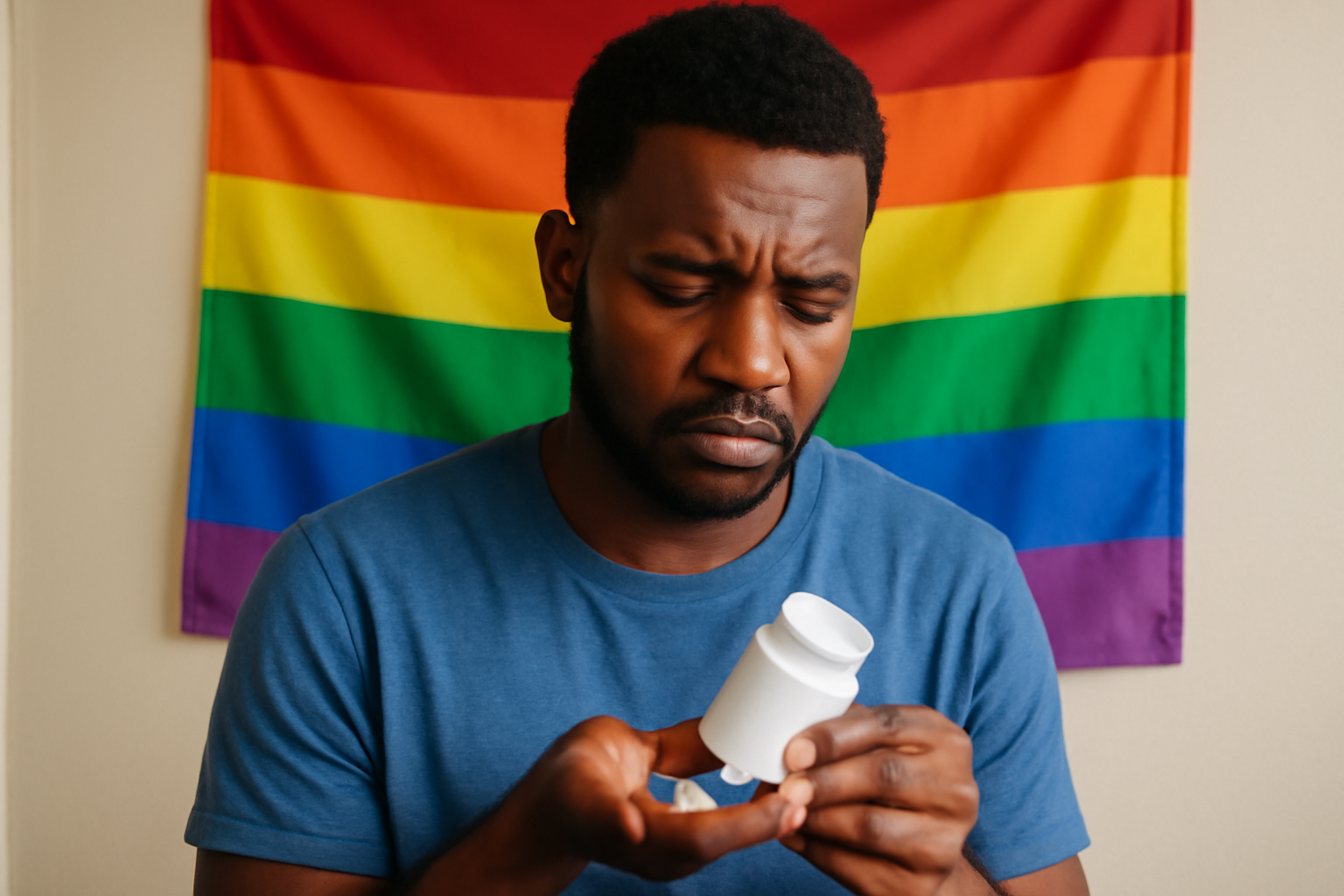
In a recent development, the U.S. State Department has announced a significant shift in the allocation of resources for the President’s Emergency Plan for AIDS Relief (PEPFAR), a vital program aimed at preventing HIV in low- and middle-income countries. According to a memo issued by the State Department, the program will now restrict the distribution of HIV-preventing pre-exposure prophylaxis (PrEP) medications exclusively to pregnant and breastfeeding women (PBFW). This decision effectively excludes LGBTQ+ individuals, sex workers, and other high-risk groups from receiving PEPFAR-funded PrEP, raising concerns about potential HIV outbreaks abroad.
The memo, circulated by the State Department’s Global Health Security and Diplomacy program, states, “People other than PBFW who may be at high risk of HIV infection or were previously initiated on a PrEP option cannot be offered PEPFAR-funded PrEP during this pause of U.S. Foreign Assistance or until further notice.”
This "pause" refers to a 90-day hold on all foreign aid mandated by an executive order from President Donald Trump, which calls for "reevaluating and realigning" U.S. foreign aid. The State Department describes the executive order as an effort to "root out waste" and "block woke programs," aiming to ensure that funding supports efforts "fully aligned" with the administration's foreign policy objectives.
Response from Advocacy Groups
The announcement has drawn sharp criticism from advocacy groups and healthcare providers worldwide. Wayne Besen, the executive director of the LGBTQ+ advocacy organization Truth Wins Out, expressed outrage at the decision, calling it a "puritanical distribution of life-saving medication that brazenly discriminates against anyone not having sex exclusively for procreation." Besen warned that the restrictions could lead to the infection and eventual death of hundreds of thousands of people globally, particularly in vulnerable communities already marginalized by the administration's policies.
In response, Secretary of State Marco Rubio issued a waiver allowing for some lifesaving medicines and medical services to continue despite the pause. However, his memo also outlined additional restrictions on PEPFAR funds, including prohibitions on surveys, systems for tracking the spread of HIV, and child abuse in regional populations. Moreover, any projects scheduled beyond December 31 of this year may not receive funding, further complicating efforts to manage and prevent HIV outbreaks.
Impact on Global Health Initiatives
The fallout from these policy changes is already being felt on the ground. Many clinics have ceased offering services, healthcare workers remain unpaid, and the program’s HIV-prevention drugs are not reaching their intended recipients, according to reports from the Kaiser Family Foundation (KFF). These disruptions significantly increase the likelihood of rising HIV rates and related deaths, as international efforts to combat the disease face unprecedented challenges.
Compounding the issue is the parallel dismantling of the U.S. Agency for International Development (USAID), the independent agency responsible for implementing most U.S. global health programs. The Trump administration’s unofficial Department of Government Efficiency (DOGE), led by Elon Musk, has targeted USAID for elimination, labeling it a "criminal organization" without providing evidence. USAID has been a primary source of funding for HIV/AIDS relief across 54 countries, supporting over 25 million people. With its website disabled and personnel furloughed or fired, the agency's future remains uncertain.
Legal and Humanitarian Concerns
The administration's actions have sparked legal challenges and widespread condemnation from global health experts and humanitarian organizations. Lawsuits have been filed by USAID contractors and nonprofit organizations, such as the AIDS Vaccine Advocacy Coalition (AVAC), challenging the legality and constitutionality of dismantling USAID and restricting PEPFAR funds. Critics argue that these moves undermine decades of progress in global health initiatives and risk reversing hard-won gains in the fight against HIV/AIDS.
As the international community grapples with these developments, the need for continued advocacy and support for affected communities is more urgent than ever. Ensuring access to life-saving medications and healthcare services remains a critical priority for organizations dedicated to preventing the spread of HIV and supporting those most in need.
Stay informed about these and other important issues facing LGBTQ+ communities worldwide by subscribing to our newsletter. Together, we can bridge borders and make a difference in the fight against HIV/AIDS.
Related Posts
Triumphant Trans Woman Wins Legal Battle and Inspires Others to Stand Up for Their Rights
Breaking new ground: a landmark victory in transgender rights After battling in courtrooms and enduring endless challenges, Diana Portillo, a transgender woman, has secured a monumental victory in her decade-long fight against workplace discrimination. The result? Nearly $1 million awarded in a historic settlement. But this isn't just a win on paper—it represents a powerful precedent in combati [...]
Pride Month in Latin America: Protests and Demands for Equality
**Celebrating Pride and advocating LGBTQ+ rights in Latin America** Pride Month in Latin America was a lively mix where celebration met activism. Communities united, not just throwing a party but making a stand—demanding equality and pushing governments toward better protection and rights recognition. Throughout Latin America, pride events erupted in marches and cultural displays, each with a c [...]
Transgender Erasure Actions Implemented by National Park Service
```html Trump administration's impact on national park service and transgender recognition The Trump administration made notable moves in undermining transgender representation, which included directing agencies like National Park Service not include "T" and "Q" when they refered “LGBTQ” in any official communication. This move seems part a broader plan by this administration aimed at reducin [...]